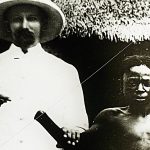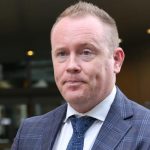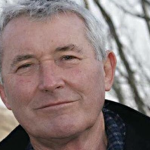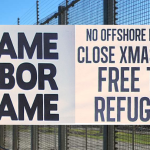“You Are Not My King”: First Nations Resistance to Charles III Tutelage Triumphs
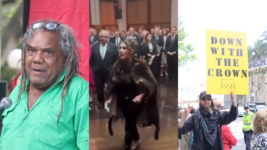
As far as historical moments go, Lidia Thorpe singing out “You are not our king. You are not sovereign” in the direction of King Charles III this week, during a reception at Parliament House in Canberra, was one of those moments, as media outlets across the globe featured reports of the Blak Sovereign woman speaking truth to power and denouncing the British monarch.
Despite Australia appearing globally as an independent nation, the truth is King Charles continues to hold seniority as head of the system of governance that is the Australian constitutional monarchy.
Section 1 of the Australian Constitution maintains that the UK monarch is head of state, and the Australian governor general is His Majesty’s local representative, according section 2 of the founding document.
“You committed genocide against our people,” the Gunnai, Gunditjmara and Djab Wurrung politician charged Charles Windsor with, and she went on to cite more crimes that the British government perpetrated on this continent in its denial of the existence of First Peoples, while carrying out their mass slaughter and dispossession.
And Thorpe was not alone in her opposition against the British monarch, as Wayne “Uncle Coco” Wharton and other activists spent the past days attempting to serve King Charles III with an arrest warrant in respect of war crimes, crimes against humanity and genocide, at his various public appearances.
Resisting occupation
“We still have a responsibility to resist this occupation and this violent colony that we’re dealing with every single day of our lives,” Senator Thorpe told the National Indigenous Times, in the wake of her confrontation with Charles III on Monday afternoon. “So, I had to do something. I had to make a statement. I can’t stand silent when there are injustices going on against our people.”
“We have to continue to resist this occupation in a way that forces them to come to our table and talk about peace,” the senator continued. “What does peace look like? Peace looks like a treaty, and that’s what my old people are telling me.”
Charles III’s visit to Australia came at a politically charged moment, as for the past year a grassroots campaign against the Israeli perpetrated genocide upon the Palestinians of Gaza, which calls for an end to Israeli occupation of Palestinian land and has as its chief aim seeing an end to Israel’s atrocity crimes, which the king’s presence reminds the UK too perpetrated in the colonisation of this land.
Unlike other former colonies of Britian, such as New Zealand, the nation of Australia has never entered into treaties with the First Nation peoples of this land.
Treaties are agreements between two sovereign entities over the use of land, water and resources, which would recognise First Peoples as sovereign and that they’ve never ceded their sovereignty over this continent to the British Crown.
“Let’s go down the process of a treaty,” Thorpe further told NIT. “Let’s work out what we want for our people, our families and our language groups and put that on the table. A treaty cannot be dictated to by any government. They can’t choose the rules for us. The rules have to be what we want them to be, and no one should be left out.”
Arresting the British monarch
As King Charles III attended a Christian mass at North Sydney’s St Thomas Anglican Church on Sunday, a group of First Nations activists and allies were gathered out the front to demonstrate his presence on this continent, and Uncle Wayne “Coco” Wharton was seeking to serve him with an arrest warrant for the atrocity crimes perpetrated against the First Peoples of this land.
“What we see around the world at the moment, for the first time in history, is imperialism being questioned and being held accountable and brought to its knees,” Uncle Coco told the 54th consecutive Free Palestine protest on Gadigal land in Sydney on 20 October, after he’d been stopped by NSW police officers from serving Charles Windsor with the warrant on Cammeraygal Country.
“Never before in history has the world come together to stand for the values that humans should stand for,” the Kooma man told those gathered in Hyde Park North.
“Out of such greed, out of such persecution, out of such sadness and harm and personal fatigue, never before have people come together in solidarity to change what the few colonisers and imperialists have tried to maintain.”
Uncle Coco then took his demonstration to Canberra on Monday, where he was detained by ACT police. And on his arrival back on Gadigal Country on Tuesday, Wharton attempted to hang a 30 metre protest flag off the side of the Sydney Harbour Bridge, however NSW police officers arrived to confiscate the large piece of cloth under the terms of section 144G of the Roads Act 1993 (NSW).
NSW police riot squad officers later arrested Uncle Coco out the front of the Sydney Opera House on Tuesday afternoon, as he was shouting antimonarchy slogans and he had refused to obey a move-on order.
“This is not your land”
“Give us our land back,” Thorpe said, as she moved towards the stage, where Charles Windsor had just finished delivering a speech before Australian dignitaries and officials.
“Give us what you stole from us: our bones, our babies, our people. You destroyed our land. Give us a treaty. We want a treaty in this country. You are a genocidalist. This is not your land.”
Thorpe was set upon by security and escorted out of the hall, as she continued to deliver her diatribe that many were sympathetic to. And despite outrage in the media over how the First Nations politician went about making her point of view known, she simply took part in an act of peaceful protest that didn’t endanger anyone, except for, perhaps, the ongoing constitutional monarchy.
“I don’t subscribe myself to be assimilated into the colonial structure,” Thorpe went on to tell Radio National on the day after she’d been escorted out of her place of work. “I’m not looking to be re-elected. I’m looking to get justice for my people.”



